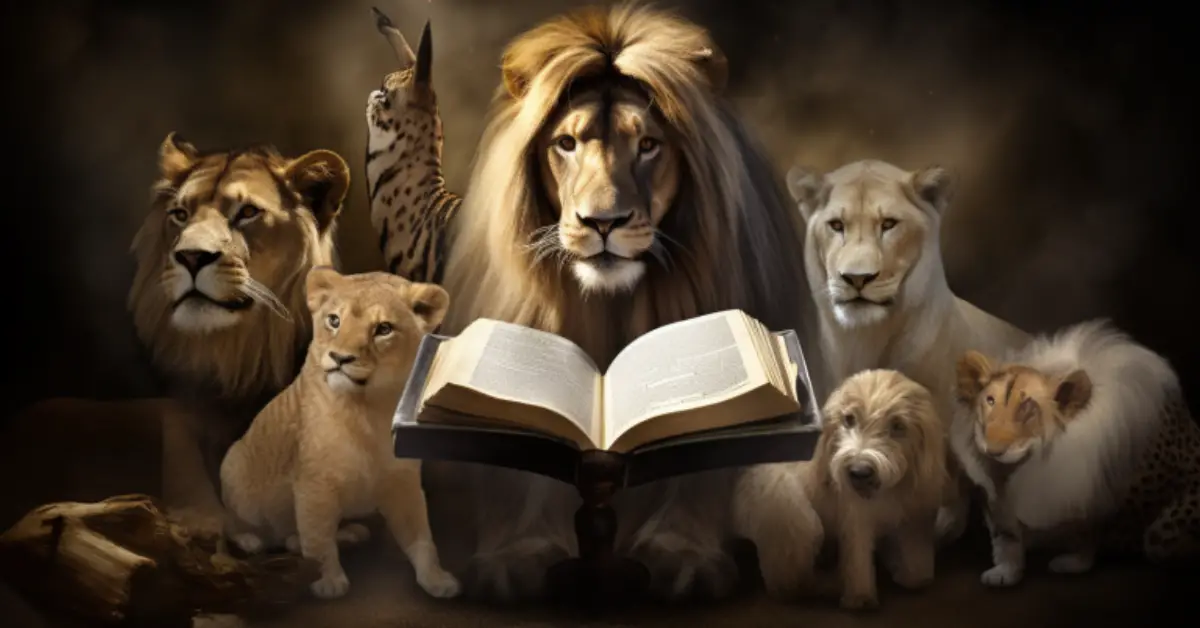The Bible showcases a diverse tapestry of animals, illustrating their value in God’s creation. From the very beginning, animals were an integral part of the earth, and humans were tasked with their care. God views them as His creatures and has given them roles in numerous biblical events. They serve as symbols, companions, and even messengers. From Eden’s serene setting to Jesus riding a donkey into Jerusalem, animals have been at the heart of many pivotal moments. Their presence underscores God’s love for all living beings.
Still on the fence about diving deeper? Well, if you’re curious about the lion’s role or the significance of a dove, read on. There’s so much more the Bible reveals about our furry, feathery, and scaly friends.
What Does the Bible Say About Animals?
In the Bible, animals aren’t just background characters; they’re central to many narratives and teachings. God created them, and they were declared “good” by Him. This appreciation for animals is evident right from Genesis. When sin entered the world, both humans and animals faced its consequences, highlighting our interconnected destinies.
One of the most endearing aspects of Jesus’s teachings in the New Testament was his use of simple, relatable examples. He often alluded to animals to make a point, indicating their importance in daily life and spiritual teachings.
For instance, consider the parable of the lost sheep. Jesus tells a story of a shepherd who leaves ninety-nine sheep to find one that’s lost. It beautifully illustrates God’s immense love for each of us, showing that every individual matters, be it human or animal.
In another instance, Jesus rides a donkey into Jerusalem, a humble act that symbolized peace. This event not only fulfills prophecy but also emphasizes Jesus’s gentle nature, contrasting with conquering kings who might have chosen a war horse.
However, while the Bible speaks of animals with fondness, it also recognizes the natural order. There are guidelines on what animals were allowed to be eaten and which were considered unclean. These laws were more than just dietary guidelines; they provided insights into holiness and health.
God’s view on animals is clear: they’re a part of His magnificent creation. The Bible encourages kindness to animals, viewing them as fellow living beings, not just resources.
Bible Verses About Animals
Genesis 1:25 – “God made the wild animals according to their kinds, the livestock according to their kinds, and all the creatures that move along the ground according to their kinds. And God saw that it was good.” This verse reiterates that animals, like everything else in creation, were designed with purpose and were seen as “good” by God.
Numbers 22:28-30 – When Balaam’s donkey saw the angel and refused to move, the Lord gave the donkey the ability to speak to Balaam. This unique event shows animals can be instruments of God’s intervention.
Proverbs 12:10 – “The righteous care for the needs of their animals, but the kindest acts of the wicked are cruel.” Here, the treatment of animals is seen as a reflection of one’s character.
Job 12:7-10 – “But ask the animals, and they will teach you, or the birds in the sky, and they will tell you; or speak to the earth, and it will teach you, or let the fish in the sea inform you.” Job emphasizes that nature, including animals, can teach us about God’s wonders.
Matthew 10:29 – “Are not two sparrows sold for a penny? Yet not one of them will fall to the ground outside your Father’s care.” This verse illustrates God’s profound care for even the smallest of creatures.
Luke 12:6 – “Are not five sparrows sold for two pennies? Yet not one of them is forgotten by God.” Again, reiterating God’s attentive care for all His creatures, big or small.
Genesis 9:9-10 – “I now establish my covenant with you and with your descendants after you and with every living creature that was with you—the birds, the livestock and all the wild animals, all those that came out of the ark with you—every living creature on earth.” Here, God’s covenant after the flood is not just with humans but with all living beings.


